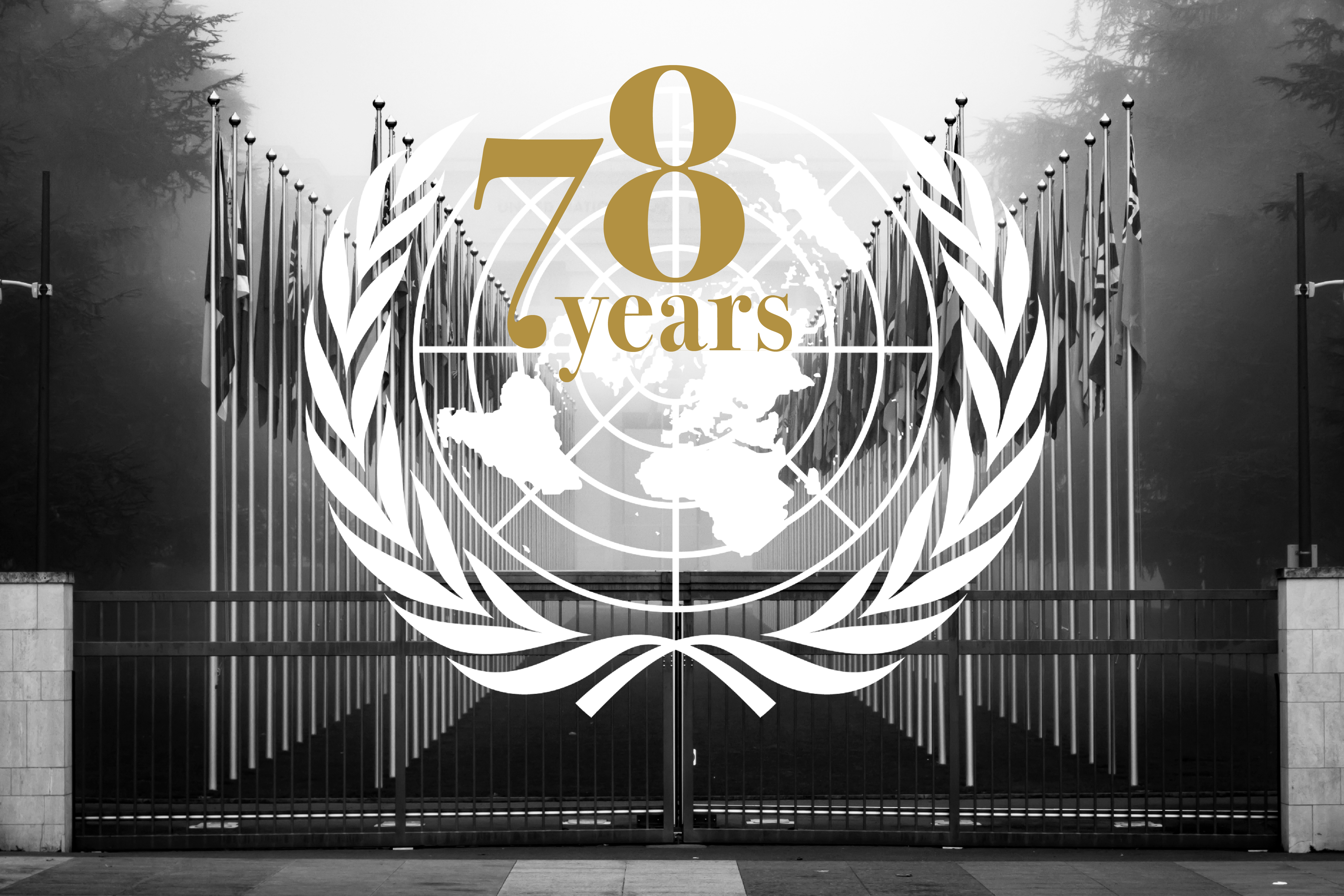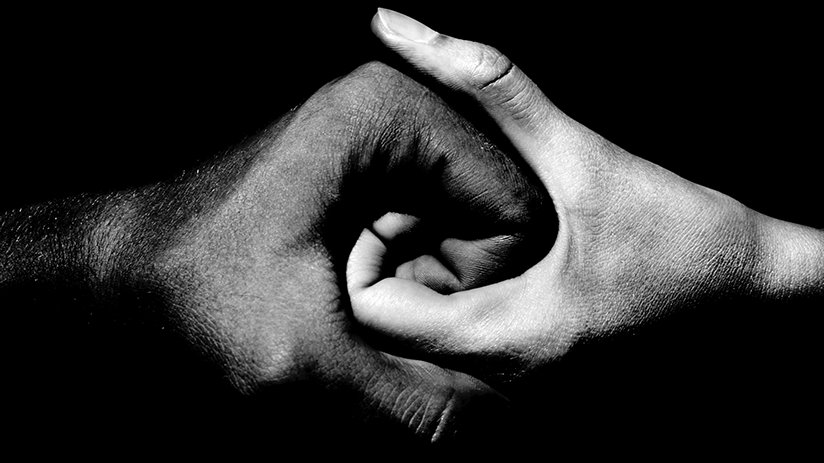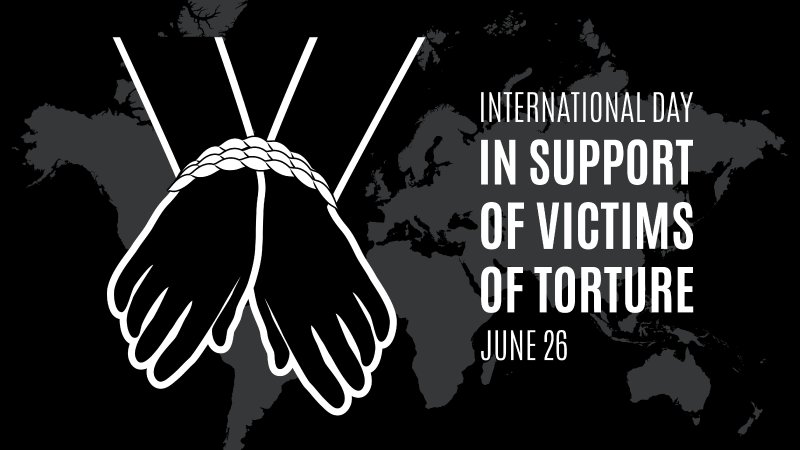
-
HOME
-
WHAT IS STANDOur Mission Our Values Our Help Contact
-
WHAT WE FIGHT FORReligious Freedom Religious Literacy Equality & Human Rights Inclusion & Respect Free Speech Responsible Journalism Corporate Accountability
-
RESOURCESExpert Studies Landmark Decisions White Papers FAQs David Miscavige Religious Freedom Resource Center Freedom of Religion & Human Rights Topic Index Priest-Penitent Privilege Islamophobia
-
HATE MONITORBiased Media Propagandists Hatemongers False Experts Hate Monitor Blog
-
NEWSROOMNews Media Watch Videos Blog
-
TAKE ACTIONCombat Hate & Discrimination Champion Freedom of Religion Demand Accountability
The UN: Fighting the Battle for Peace for 78 Years
The United Nations is the grown-up in the room. For a global population emerging from the ashes of World War II, stunned and reeling, it was the solution for a world fearful of destroying itself. Never had we come so close to self-extinction. The nations united in forging the charter that was to be the United Nations 78 years ago this week knew that it was now or never—that as a matter of survival the peoples of Earth needed a gathering place, a sanctuary in which to sort out their differences by conference and communication rather than combat.

The U.N.’s mission covers five main areas: maintaining international peace and security, delivering humanitarian aid, supporting sustainable development and climate action, upholding international law and protecting human rights. Those are the five spokes of the wheel that is the United Nations.
Human rights are as fundamental to mankind as the law of gravity is to nature.
Maintaining International Peace and Security: The U.N. came into existence for the primary purpose of keeping the peace. It does this using whatever means it can—dialogue, mediation, deploying on-the-ground peacemakers, or other avenues. The U.N. Security Council has as its ultimate responsibility to keep the peace through dispute settlement, economic sanctions, resolutions and international military action.
Delivering humanitarian aid: With war comes devastation, the hardest hit being those who did not fight: families, children, seniors—the innocents. The Second World War wreaked destruction on a scale never before conceived, and the U.N.’s first job was not diplomatic but humanitarian, and has remained so to this day. The U.N. Charter states, “to achieve international co-operation in solving international problems of an economic, social, cultural, or humanitarian character.” Where there is devastation, hardship and pain—man-made or otherwise—the U.N. is there, coordinating relief efforts and offering humanitarian help to the helpless.
Supporting sustainable development and climate action: The latest of the U.N.’s commitments is the economic and human threats that accompany climate change. Since 2015 the U.N. has helped raise the world’s consciousness of this crisis and has launched agendas and programs aimed at lowering greenhouse gas emissions and targeting sustainability over waste.
Upholding international law: There is international accountability and there is international justice. The U.N. upholds international law through tribunals, sanctions, peace-keeping forces and multilateral treaties. The sovereignty of a nation and the security of its people must be respected, and the U.N. is there to ensure those boundaries are maintained.
Protecting human rights: The drafters of the United Nations Charter understood the importance of protecting human rights in the very first sentence of that document:
“We the peoples of the United Nations determined to save succeeding generations from the scourge of war, which twice in our lifetime has brought untold sorrow to mankind, and to reaffirm faith in fundamental human rights, in the dignity and worth of the human person, in the equal rights of men and women...”
The U.N. has been fighting a battle for peace and human rights for 78 years this October 24.
Human rights are as fundamental to mankind as the law of gravity is to nature, and the awareness that these rights exist predates gravity’s discovery by some 2,000 years. It began with Persian ruler Cyrus the Great’s recognition that people are happier and easier to govern when not enslaved and when given the freedom to choose their religion. From there, it evolved until crystallized into the Universal Declaration of Human Rights, a document that lists all the rights one possesses simply by virtue of being human.
Protecting human rights is the U.N.’s most important and most vital job, for without this spoke of the wheel, none of the other four have a chance: Without recognition of human rights, there can be no peace, no humanitarian aid, no sustainable development and no respect for international law.
And very possibly, no human race.
The U.N. has been fighting a battle for peace and human rights for 78 years this October 24. Sometimes it’s been uphill, sometimes there have been setbacks. But the United Nations has been the world’s best—and sometimes, when things looked darkest, its last—hope.
Happy birthday, U.N.









